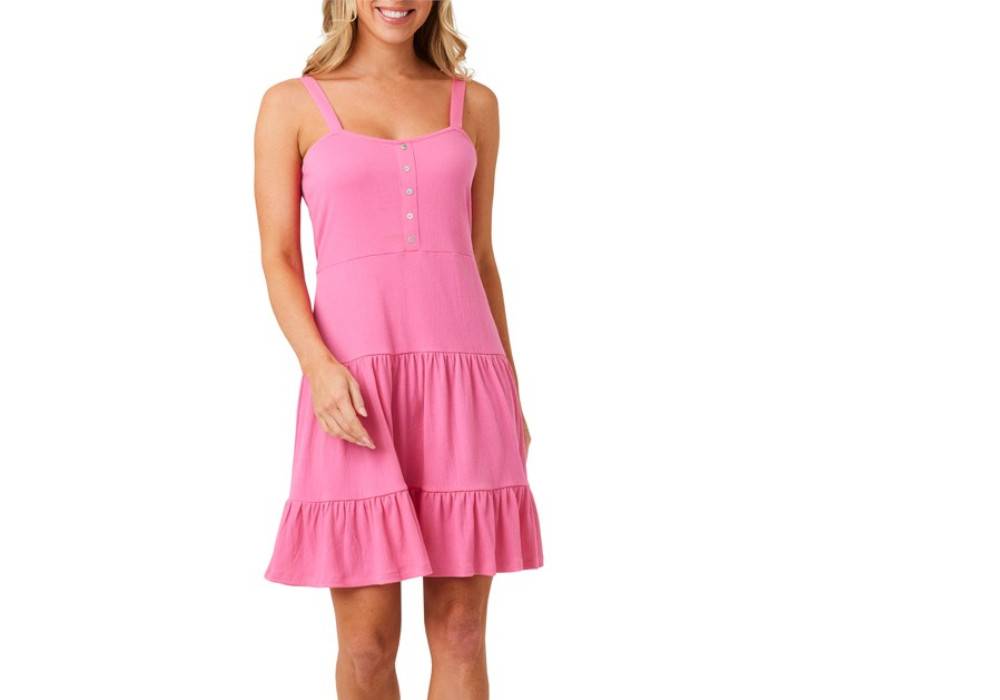
Big W is an Australian retailer founded in 1964 and headquartered in Bella Vista, Sydney. The multinational retail company creates casual apparel for men, women, and children.
Big W makes clothing, accessories, shoes, swimwear, beauty, and perfumes. Australian retail company, Woolworths Group, owns Big W along with other brands and businesses in Australia and New Zealand.
Big W operates more than 170 stores and has over 18,000 employees, for the most part, in Australia. Woolworths Group is the largest company in Australia by revenue and the second-largest in New Zealand.
Big W is working to create sustainable growth and have a positive impact on its team, customers, the planet, and the communities it serves to create a better tomorrow for future generations.
Panaprium is independent and reader supported. If you buy something through our link, we may earn a commission. If you can, please support us on a monthly basis. It takes less than a minute to set up, and you will be making a big impact every single month. Thank you!
Sustainability Rating: 5/10
Rating FAQ
Category: Clothing, accessories, shoes, bags, jewelry
For: Women, men, children
Type: Basics, denim, knitwear, activewear, underwear, loungewear, swimwear, outerwear, sleepwear, maternity, sneakers, boots, flats, heels
Style: Casual
Quality: Low
Prices: $
Sizes: XS-XL, 2-14 (US), 4-16 (UK), 34-44 (EU), 6-18 (AU), plus
Fabrics: Cotton, linen, jute, lyocell, modal, viscose, acetate, polyester, nylon, spandex, polyethylene, polypropylene, acrylic, neoprene, polyurethane, rubber, leather, wool, silk
100% Organic: No
100% Vegan: No
Ethical & Fair: Yes
Recycling: Yes
Producing countries: Australia, Bangladesh, China, India, Pakistan
Certifications: FSC, BCI, Oeko-Tex, RWS, SA8000, BSCI, WRAP Sedex, SMETA
Sustainability Practices
Big W takes wide-ranging measures to protect biodiversity, reduce its consumption of water, energy, and other resources, avoid waste, and combat climate change.
It wants to be better and more efficient by looking at every aspect of its value chain to ensure the healthy functioning of our planet. However, the majority of its business remains detrimental to the environment.
Big W only uses a tiny proportion of organic materials such as organic cotton or recycled materials such as recycled cotton and recycled polyester.
Most of the fabrics it uses are either natural without relevant certifications, such as regular cotton or linen, or synthetic petroleum-based fibers such as polyester, nylon, acrylic, and more.
Big W also uses a small proportion of semi-synthetic fibers or regenerated cellulosic fabrics such as lyocell, modal, and viscose.
Big W publishes a list of some of its manufacturers and processing facilities on its corporate website, Woolworths Group. It wants to make a real difference and has responsible sourcing and responsible purchasing programs.
The 2022 Fashion Transparency Index gave Big W a score of 26 based on how much the group discloses about its social and environmental policies, practices, and impacts.
Big W manufactures its clothes in many East Asian countries, where human rights and labor law violations happen every day.
The Australian retailer does show some labor certification standards that could ensure good working conditions, decent living wages, health, safety, and other crucial rights for workers in its supply chain.
Big W has a code of conduct that applies to all its suppliers and subcontractors based on the regulations set by the International Labor Organization (ILO).
Big W assesses compliance with its Code of Conduct by informal visits or third-party audits with or without notice. It works with international and local unions and NGOs to improve the working conditions in its factories.
Big W is part of industry initiatives such as ACT (Action, Collaboration, and Transformation) to address living wages in Bangladesh.
Big W doesn't use exotic animal skin, hair, fur, or angora. But it uses leather, wool, and silk to manufacture many of its clothing pieces.
These animal-derived materials are cruel and unethical. They also harm the environment by producing greenhouse gases and waste. More sustainable alternatives exist.
Sustainability Goals
Big W has goals of 100% green electricity by end of 2025 and net positive carbon emissions by 2050. Initiatives in its business can have a positive impact in addressing climate change and environmental issues such as deforestation and biodiversity loss.
Big W has committed to having 100% of its own brand sourcing sustainable by 2025. It will acheive a goal of 100% sustainable own brand packaging by the end of 2025.
Buy Here
Discover Big W's sustainable collections at BigW.com.au.
Reviews And Experiences With Big W
Have you had (good) experiences with shopping at or the products of Big W? Then leave us your rating below.
What We're Up Against
Multinational corporations overproducing cheap products in the poorest countries.
Huge factories with sweatshop-like conditions underpaying workers.
Media conglomerates promoting unethical, unsustainable products.
Bad actors encouraging overconsumption through oblivious behavior.
- - - -
Thankfully, we've got our supporters, including you.
Panaprium is funded by readers like you who want to join us in our mission to make the world entirely sustainable.
If you can, please support us on a monthly basis. It takes less than a minute to set up, and you will be making a big impact every single month. Thank you.

















0 comments